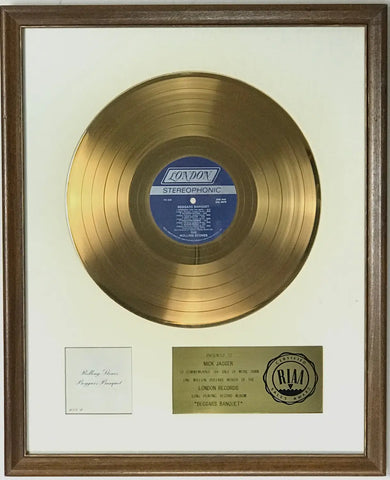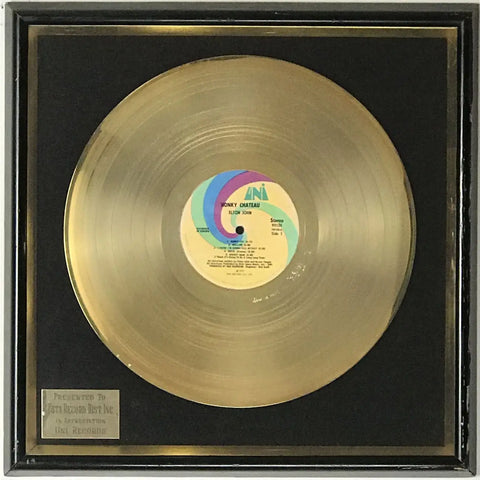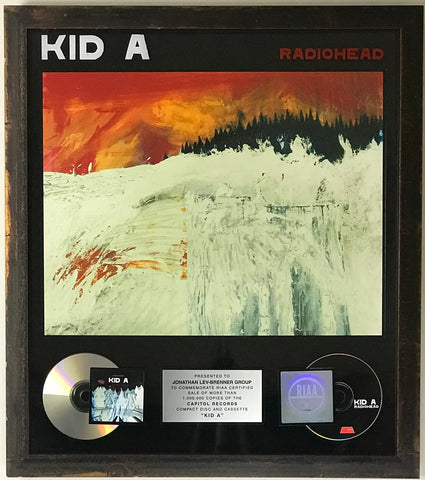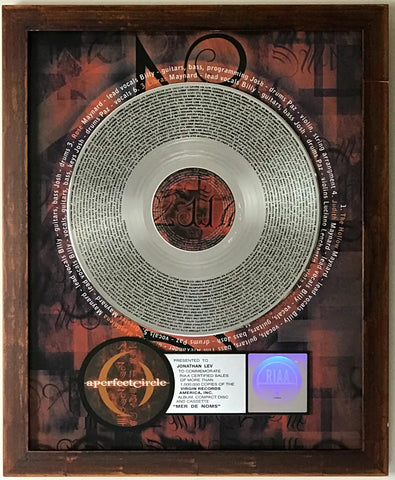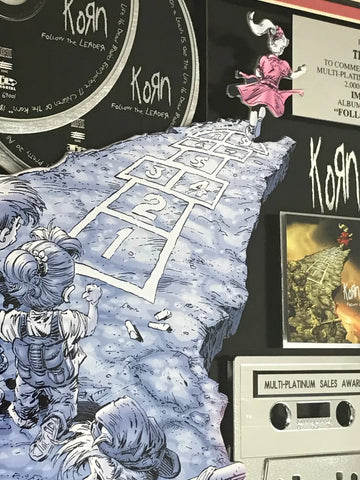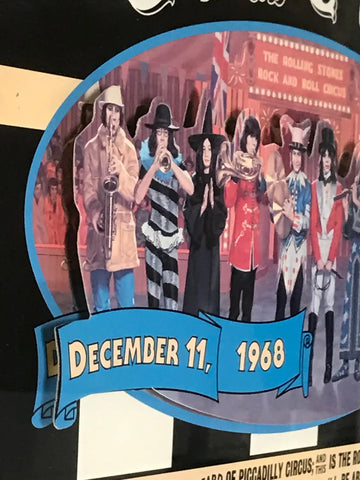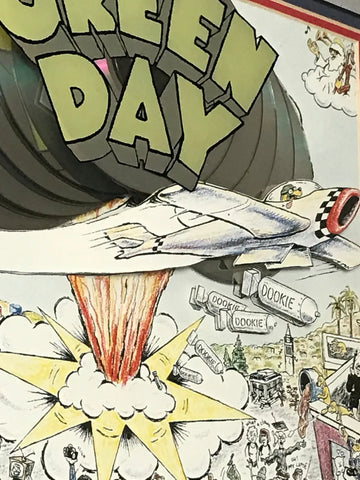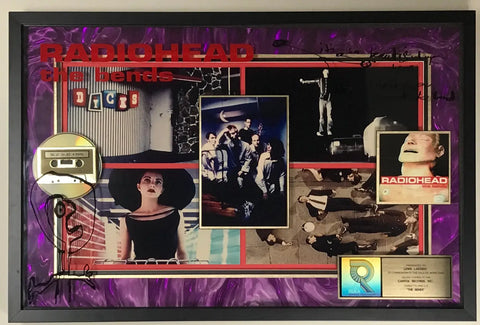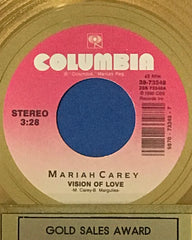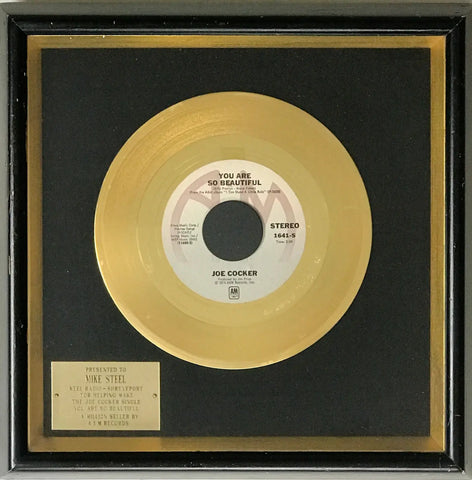
Just before the millennium, however, the RIAA loosened up its' previously strict design standards. This opened up the creative floodgates for award designers, who responded with an explosion of new designs. The companies that designed these new award creations were primarily those newly-licensed by the RIAA to make the awards at that time with the bulk being made by Ill-Eagle Enterprises, Fitzgerald Hartley, and Jewel Box Platinum, along with a few others.
Looking back, it would be a revolution of sorts in the awards industry. Early RIAA-licensee award makers New York Frame & Picture Co. and Creative Glassics no longer made awards at this point and a new era had begun.
For some who collect today it was not a welcome evolution. These collectors still prefer the simple, almost stately 1964-74 RIAA "white matte" awards. Or perhaps the versions made by Disc Award Ltd., a 60s-era company that made awards for the labels and artist management only, not the RIAA.
For these purist collectors, the surviving examples of those made by the early companies in the 60s and early 70s represent the apex of awards. There is certainly a great appeal to these classic awards. They are simple, even elegant, and certainly rare, since they were made in smaller numbers.
And it's true that the RIAA white matte awards and earliest label awards are typically the most valuable to collectors by a good margin. This certainly explains their collector appeal.
Here are a couple of examples as we compare them to newer awards. On top is a RIAA Gold white matte, in this case a 1969 award for the Rolling Stones Beggar's Banquet. On bottom is a Disc Award Ltd. label award from 1972 for Elton John's Honky Chateau album:
Some creativity crept in during the 1970s, like this Al Stewart award which clearly played on the album's title:
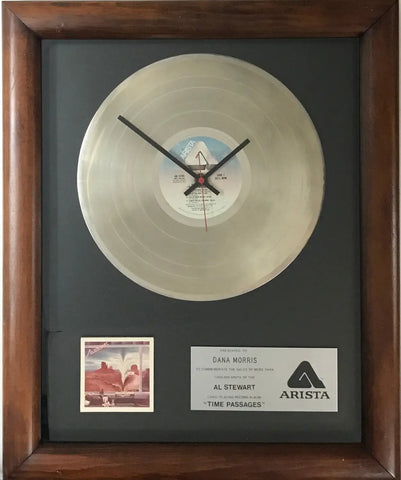
Or this award for the 1978 debut album from Boston:
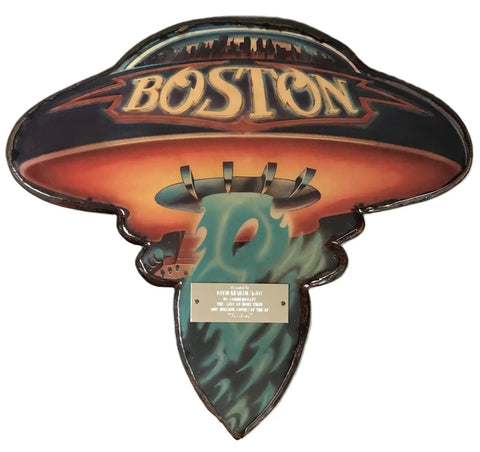
By the 80s and 90s, Multi-Platinum awards of excess were just the ticket. For example these, the top being a 3x Multi-Platinum RIAA award for the Stone Temple Pilots 1992 smash Core, the bottom being a deliciously disc-laden label award for CCR's sales successes over several albums.
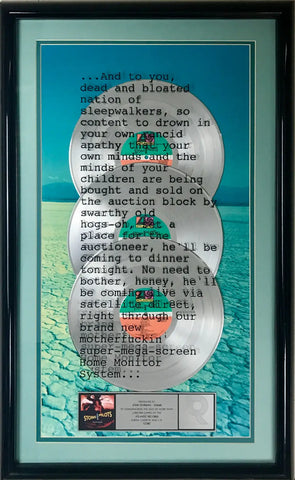
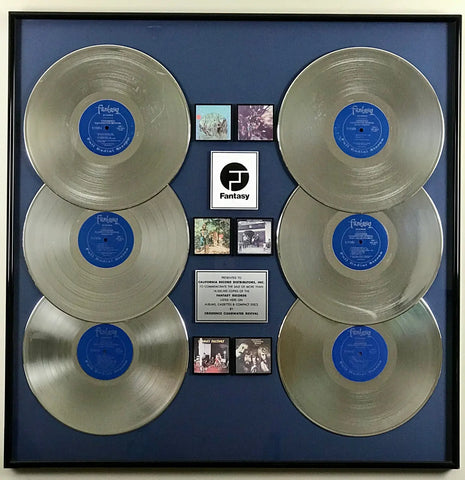
Another era of award designs, as cassette and then CD formats gained traction in the marketplace, involved mostly similar award designs focusing on album cover miniatures denoting the sales level. Here are examples of awards from this time, including a 1991 8x Multi-Platinum award for Pink Floyd's epic album The Wall:
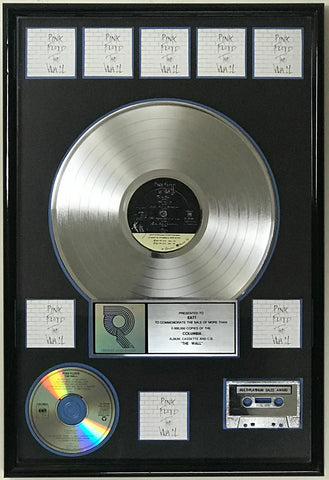
This one for Beatles classic Sgt. Pepper, which actually was not certified RIAA Platinum (and simultaneously 8x Multi-Platinum) until 1992:
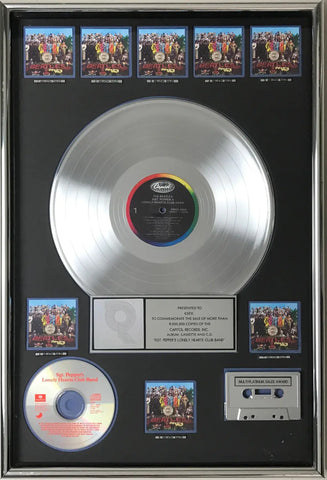
The CD era brought a new design element to awards in the 90s as well, such as this RIAA 8x Multi-Platinum Backstreet Boys award for their 1997 self-titled album:
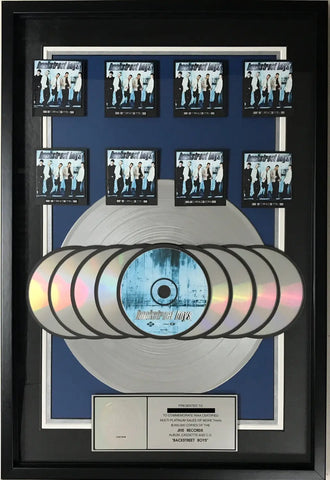
And this RIAA 10x Multi-Platinum plaque for Celine Dion album Falling Into You from 1997:
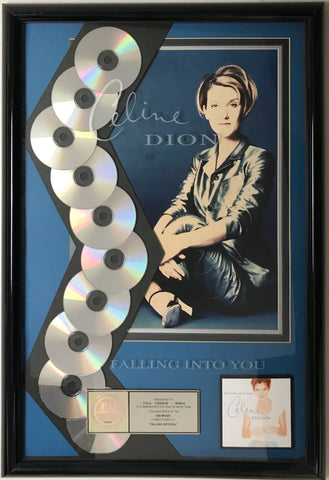
Guns N' Roses gave award makers lots of CDs to work with by 2008 with their 1987 Appetite For Destruction album having been certified 18x Multi-Platinum:
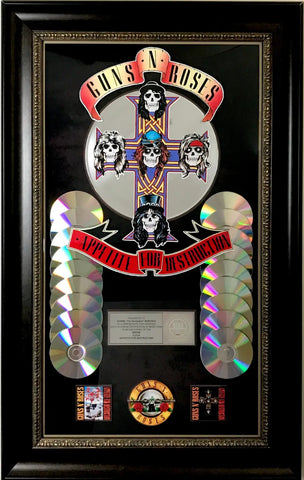
But for yet another set of collectors the later award designs, with their artistic creativity and ingenious construction methods, merit their own special appeal.
Part of the reason for this might be that the designers usually key the awards to the artist's album themes or album art, better connecting the artist being honored to the award.
While there are dozens if not hundreds of uniquely interesting awards made in the past 20 years or so, let's take a look at a few examples of the newfound creativity that appeared from the late 1990s on.
This award for Aerosmith's 1997 Nine Lives album played on the release's feline theme:
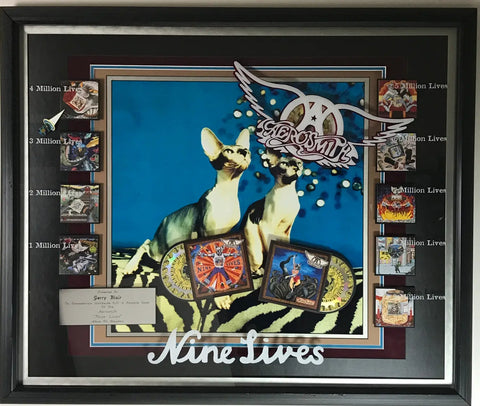
Linkin Park became known for their ultra industrial designs for 2000 album Hybrid Theory, including this ultra-sleek Platinum award that utilized mostly metal components:
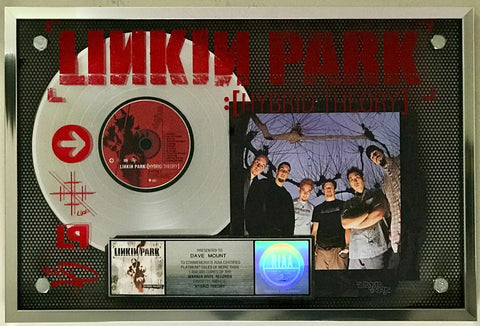
Here's a detail of another creative use of a metal hardware in an award, this one for Powerman 5000's 1999 release Tonight the Stars Revolt!
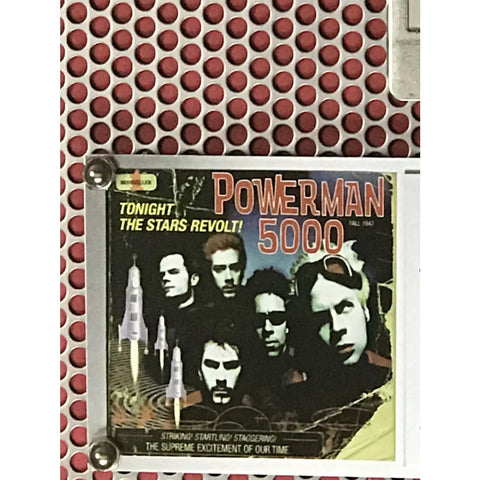
Like the Linkin Park award above, this large 1997 award for the Smashing Pumpkins Mellon Collie and the Infinite Sadness album featured graphics printed on the plexiglass, a technique used more and more commonly from the late 90s on:
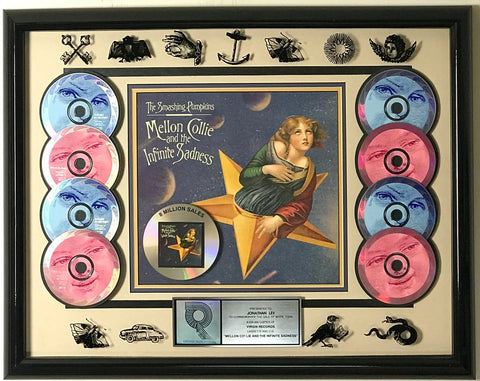
This 2006 John Fogerty award featured a real, stringed guitar fingerboard element:
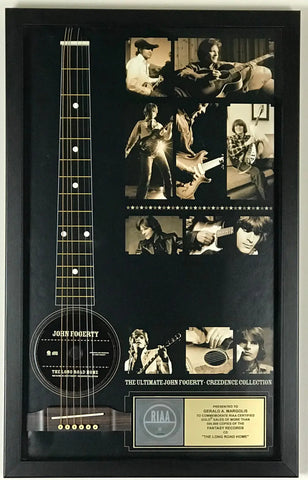
Designers for this 1998 Big Bad Voodoo Daddy album award went for a faux bamboo frame to compliment the group's signature artwork:
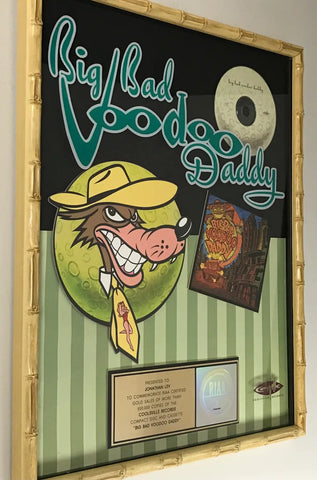
Sometimes the album art is the focus, such as this award for Radiohead's 2000 album Kid A, which highlighted artist Stanley Donwood's computer-manipulated cover painting:
Or this RIAA Gold award for 2011 Five Finger Death Punch for American Capitalist:
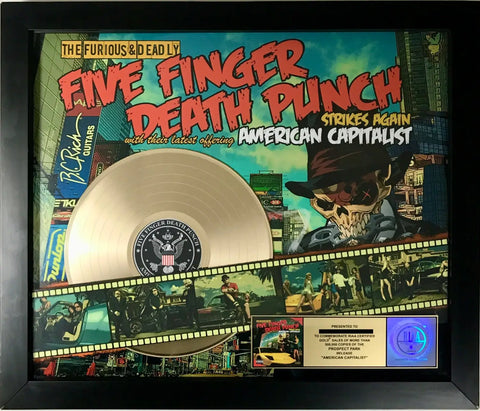
This 1998 award for the Foo Fighters The Colour And The Shape album employed sculptural elements reflecting the album art in a shadow box:
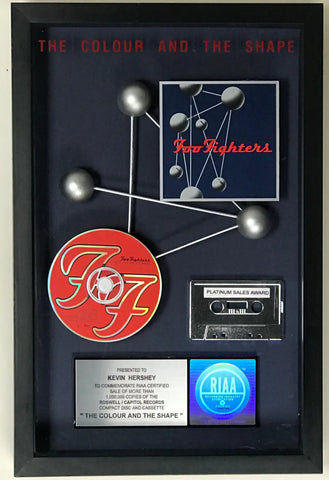
Designers of an award for Mer de Noms, the 2000 album from A Perfect Circle played on the group's name by including band info and lyrics on the award's disc:
Specially shaped awards also appeared in the mix. Check out these examples for Lenny Kravitz's 1998 hit album 5 and Moby's 1999 release Play:
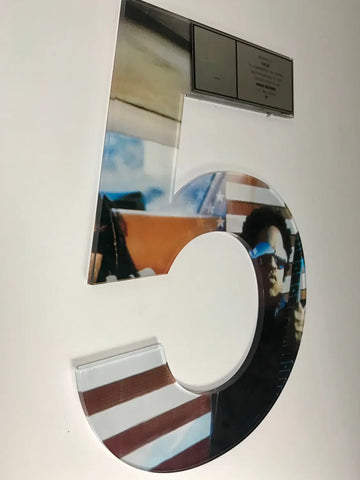
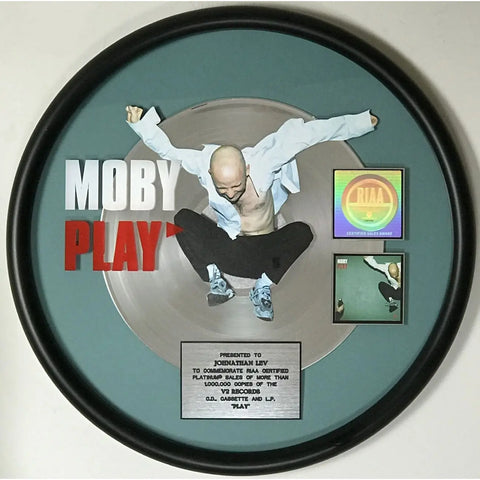
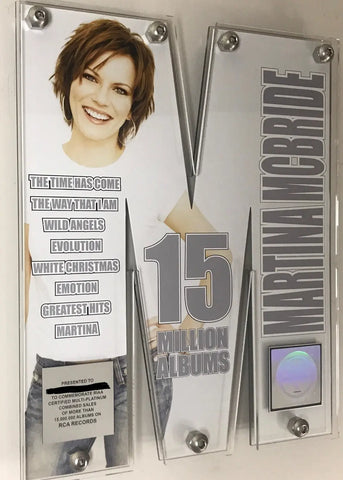
This 2007 French award for MIKA album In Cartoon Motion is, yes, sofa-shaped:
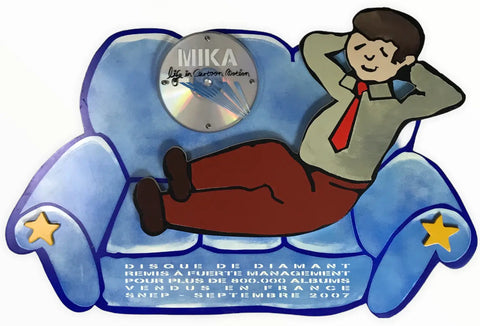
These detail photos show how these awards for Korn's 1998 album Follow The Leader (top), the Rolling Stones 1997 Rock 'N Roll Circus concert video (middle), and Green Day's 1994 breakthrough Dookie (bottom) made use of "3D" paper art elements:
This 1996 shadow box-style award for Radiohead's album The Bends blends many different cool design elements:
Finally, one of the most exotic we've seen, the masterpiece created for Fat Boy Slim 1998 release You've Come A Long Way Baby, complete with turntable in road case:
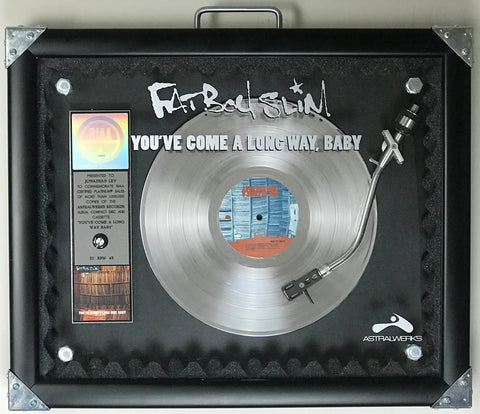
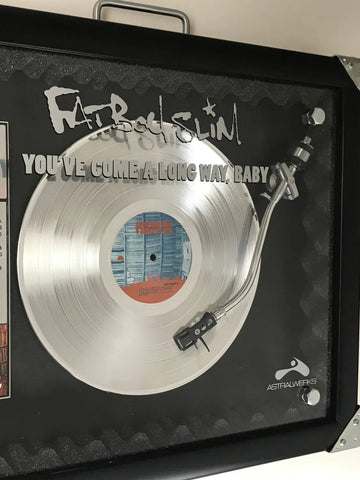
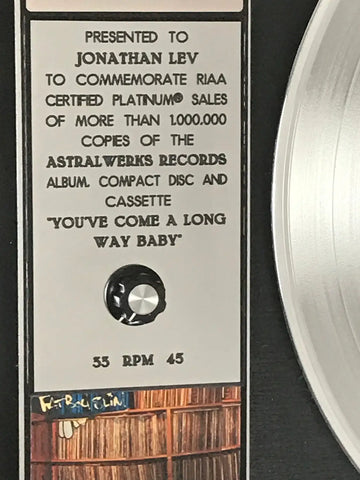
Whether your interests as a collector lie in the early classic awards, the later wild designs, or a mix of both, see what you can discover out there in the world of awards.
We have the largest selection of guaranteed genuine record awards in the world -- check them all out here and we hope you enjoy exploring!
Want more content like this? Subscribe to our free MusicGoldmine newsletter which comes out every two weeks. Go here to sign up.
Gold® record, Platinum® record, and Multi-Platinum™ record are registered service marks of the Recording Industry Association of America (RIAA).

